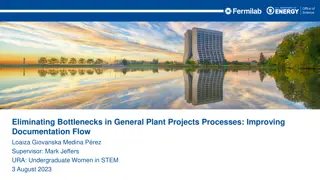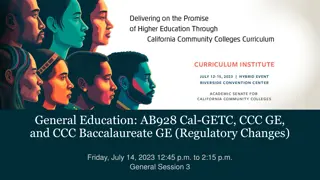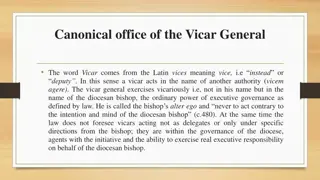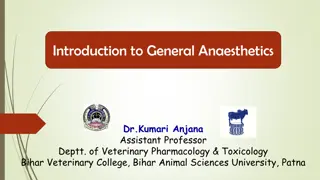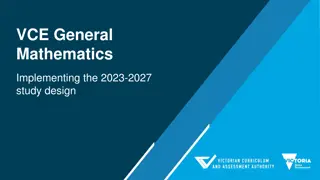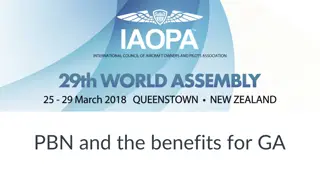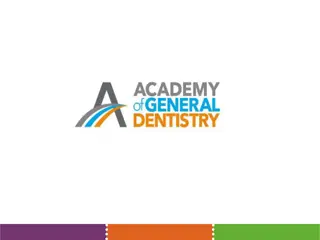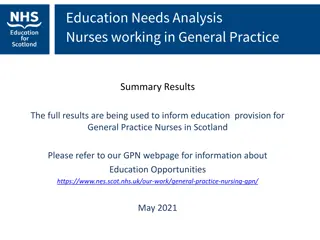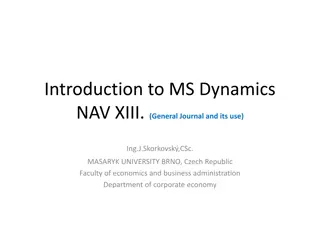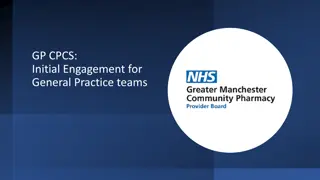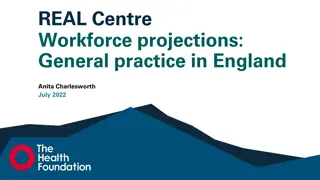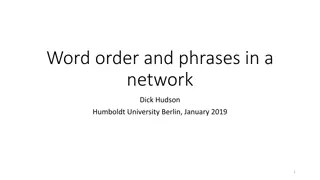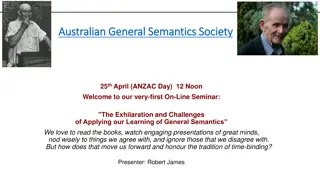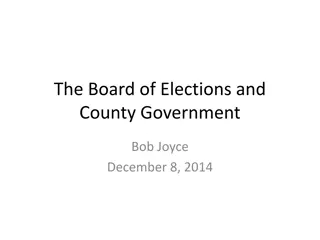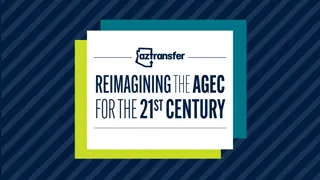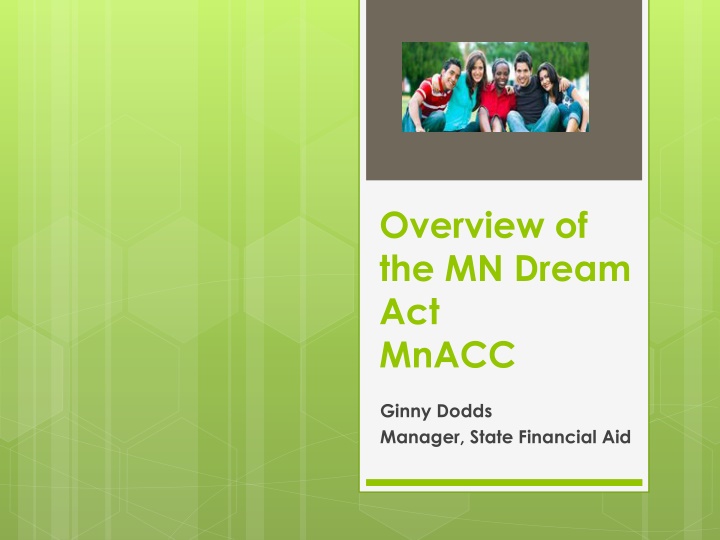
Minnesota Dream Act and DACA: A Comprehensive Overview
Explore the differences between the Minnesota Dream Act and DACA, including eligibility criteria, benefits, and limitations. Learn about the Deferred Action for Childhood Arrivals (DACA) program, its requirements, and recent updates. Discover how the Prosperity Act applies to higher education in Minnesota.
Download Presentation

Please find below an Image/Link to download the presentation.
The content on the website is provided AS IS for your information and personal use only. It may not be sold, licensed, or shared on other websites without obtaining consent from the author. If you encounter any issues during the download, it is possible that the publisher has removed the file from their server.
You are allowed to download the files provided on this website for personal or commercial use, subject to the condition that they are used lawfully. All files are the property of their respective owners.
The content on the website is provided AS IS for your information and personal use only. It may not be sold, licensed, or shared on other websites without obtaining consent from the author.
E N D
Presentation Transcript
Feature: Minnesota Dream Act Overview of the MN Dream Act MnACC Ginny Dodds Manager, State Financial Aid
Is DACA the same as the MN Dream Act? https://encrypted-tbn0.gstatic.com/images?q=tbn:ANd9GcSsof62tgArYWXeGAziAZJLrF-iT9ICfHM6oZfzq7S8_RiYHV6ivw
Deferred Action for Childhood Arrivals (DACA) U.S. immigration policy memorandum Defer action against undocumented individuals meeting certain criteria Applicants pay $465 to apply Originally created on June 15, 2012 Recently expanded 11/20/14 by executive order Cannot apply for expanded definition due to pending legal challenges Consult with immigration attorney before applying for DACA
DACA original Under age 31 as of June 15, 2012 Arrived in U.S. before 16th birthday Entered U.S. or fell out of lawful status before 06/15/2012 11/20/2014 Have continuously resided in the U.S. since 06/15/2007 1/1/2010 Attending school at time of application (or have graduated, earned GED, honorable military discharge) Not convicted of felony, significant misdemeanor or 3 or more misdemeanors Granted for two three years
Deferred action for Parents of US Citizens and Permanent Residents - DAPA Parent of a U.S. citizen or permanent resident (green card holder), as of November 20, 2014; Continuously resided in the U.S. since January 1, 2010; Physically present in the U.S. on November 20, 2014 and at the time of request; No lawful status as of November 20, 2014
Benefits & Limitations DACA & DAPA Benefits Limitations Protection from deportation for 3 year period Not a green card or visa Work authorization Social security number Not a path to citizenship Driver s license in some states Discretionary case-by- case decision based on DHS enforcement priorities May request permission to travel abroad
Prosperity Act (MN Dream Act) Amended to Omnibus Higher Education bill Signed into law on May 23, 2013 Applies to any academic term starting on or after July 1, 2013 at a Minnesota college or university
Prosperity Act (MN Dream Act) Eligible for: In-state tuition rates at MnSCU and University of MN campuses State financial aid programs Privately-funded scholarships administered by MnSCU or U of M campuses
Prosperity Act (MN Dream Act) Requirements: Attend a MN high school for at least 3 years; and Graduate from a MN high school or earn a GED in MN; and If male, complied with Selective Service registration requirements; and Apply for lawful immigration status once federal process exists (does not refer to Deferred Action for Childhood Arrivals)
Prosperity Act (MN Dream Act) Selective Service Requirements Males 18 to 25 years old born 1960 or later are required to register This includes undocumented individuals If student has social security number via Deferred Action for Childhood Arrivals (DACA) status Register for Selective Service online at: www.sss.gov Should receive confirmation in 1-2 weeks
Prosperity Act (MN Dream Act) If student cannot register online: download Selective Service registration card from www.ohe.state.mn.us/MNDreamAct Mail completed card to OHE along with other documentation needed for MN Dream Act OHE will make copy and mail original to Selective Service System on student s behalf
Prosperity Act (MN Dream Act) Documentation required to establish eligibility for MN Dream Act High school transcripts (don t have to be certified/sealed) High school diploma or GED (if high school graduation not documented on transcripts) Proof of Selective Service registration (for males born after 1959) Completed SS registration card or Proof of registration from Selective Service or Confirmation from Selective Service that failure to register was not knowing or willful
In-State Tuition at MnSCU & U of M Students meeting MN Dream Act (or MN residency criteria after receiving DACA status) eligible for in-state tuition rates Several MnSCU campuses and U of M Crookston and Morris campuses no longer have non-resident tuition rates Students will only have to apply for in-state tuition under the MN Dream Act if the campus charges a non-resident tuition rate
2016-17 Resident vs. Non-Resident Tuition* College Resident Non-Resident Savings U of M TC U of M Duluth U of M - Morris Metro State Univ MN State Univ, Mankato Saint Cloud State Univ Winona State Univ Lake Superior College MN West CC&TC Pine Technical College $14,224 $13,114 $12,846 $ 7,566 $ 7,858 $ 7,910 $ 9,076 $ 4,946 $ 5,641 $ 5,037 $24,378 $17,460 $16,984 $14,394 $18,476 $14,763 $14,744 $ 9,320 $10,736 $ 9,586 $10,154 $ 4,346 $ 4,138 $ 6,828 $10,618 $ 7,918 $ 6,853 $ 4,374 $ 5,095 $4,549 *Undergraduate tuition for 30 semester credits
Prosperity Act (MN Dream Act) What state financial aid programs are available?
MN State Grant Program Need-based grant based on student s federal EFC, price of college and enrollment level Gift aid; does NOT have to be repaid Must be used by MN resident at MN college Eligible until student has attended college for 4 full-time academic years (or equivalent) Cannot be in default on student loans or delinquent on child support Must be making satisfactory academic progress in college pursuing certificate, diploma or degree
MN State Grant Program (2016-2017 Annual Awards for Student With $0 EFC) U of M/Private State University 2-Year Public Annual Pell Grant Award $5,815 $5,815 $5,815 $5,815 $4,361 $4,361 $4,361 $2,908 $2,908 $2,908 $1,454 $1,454 $1,454 Annual State Grant $5,938 $5,150 $4,375 $3,587 $4,254 $3,478 $2,691 $3,356 $2,580 $1,793 $2,459 $1,684 $896 Annual Pell Grant Award $5,815 $5,815 $5,815 $5,815 $4,361 $4,361 $4,361 $2,908 $2,908 $2,908 $1,454 $1,454 $1,454 Annual State Grant $2,869 $2,287 $1,714 $1,132 $2,004 $1,431 $849 $1,721 $1,147 $566 $1,438 $865 $283 Credits For Term Annual State Grant $1,543 $1,050 $565 State Grant for Term 15 14 13 12 11 10 9 8 7 6 5 4 3 $772 $525 $283 $0 $517 $274 $0 $507 $264 $0 $498 $255 $0 $0 $1,033 $547 $0 $1,014 $528 $0 $996 $510 $0
Postsecondary Child Care Grant Program For low-income students with children in child care while they attend college Available to MN residents attending MN public colleges and private 4-year degree- granting colleges Gift aid; does NOT have to be repaid Eligible until student has attended college for 4 full-time academic years (or equivalent) Cannot be in default on student loans Must be making satisfactory academic progress in college
Postsecondary Child Care Grant Program Maximum award per child for full-time student $2,800 Must fill out paper program application after completing online state financial aid application Program application available at college financial aid office Will be awarded by financial aid office at college Financial aid administrator can access student s application record on OHE system to get total income, household size, household members, EFC
MN State Work Study Program Must have DACA status, work authorization and social security number Must also meet MN Dream Act requirements OR have DACA status before meeting state residency requirements Work study jobs available on or off campus Most students work 10-15 hours per week Must be arranged by college financial aid office Contact college after submitting online state financial aid application and all supporting documentation College can access OHE system to confirm DACA, MN resident status, EFC
Tuition Reciprocity Program Available to MN residents attending public colleges and universities in: North Dakota South Dakota Wisconsin Manitoba Iowa Lakes Community College Won t have to pay higher non-resident tuition rate MN residents generally pay the higher of the MN resident tuition rate or the resident tuition charged by the college attended
Tuition Reciprocity Program If attending in SD, IA, Manitoba and ND, students will be approved on campus All students attending in SD, IA, MB New high school graduates attending in ND Otherwise, students should: Use new state online financial aid application Tuition reciprocity application Both available on: www.ohe.state.mn.us State financial aid NOT available in other states (except SELF Loan)
SELF Loan Program Available to students attending MN colleges or MN residents attending in other states No immigration requirements for borrower Co-signer must be U.S. citizen or permanent resident, live in U.S. and have no adverse credit Should complete state online financial aid application Will also require a SELF loan application www.selfloan.state.mn.us (online application for DACA students with SSN) Pick up paper application at college (students without SSN) Up to $20,000 per year for 4-year degree programs or graduate students Up to $7,500 per year for shorter programs
Financial Verification Documents Will need to submit signed copies of federal income tax return for previous tax year (e.g. 2015 for 2016-2017 school year) Student (and spouse, if married) Student and Parents (if student is dependent for financial aid purposes) If income was under threshold for filing a tax return, should submit W2s and signed statement indicating not required to file tax return and listing any additional income
Financial Verification Documents If income was over threshold for filing federal tax return, student/parents must complete and submit a federal tax return Can apply for and use ITIN (instead of SSN) to file tax return Submit copy of completed form(s) to OHE with other MN Dream Act documentation
2015 Federal Tax Returns Required Tax Filing Status Single Age Under 65 65 or older Under 65 (both) 65 or older (one) 65 or older (both) Any age Gross Income at Least $10,300 $11,850 $20,600 $21,850 $23,100 $ 4,000 Married filing jointly Married filing separately Head of Household Single and claimed as dependent Under 65 65 or older Under age 65 $13,250 $14,800 $ 1,050 unearned income $ 6,300 earned income
MN Dream Act State Financial Aid Application Undocumented students cannot file a Free Application for Federal Student Aid (FAFSA) www.ohe.state.mn.us/MNDreamAct MN Dream Act State Financial Aid Application Application has instructions on-line in English and Spanish Student should reapply for state financial aid every year in college
MN Dream Act State Financial Aid Application Must complete in one sitting!
MN Dream Act State Financial Aid Application Students can call MN Office of Higher Education Grant Unit for assistance (651) 642-0567 #2 Toll-free (800) 657-3866 Can arrange for translation services if student and/or parents don t speak English
Special Considerations State Grant does not cover tuition and fees for most students Some colleges offer institutional scholarships U of M Upromise Private 4-year college scholarships MnSCU Some award Alliss Grants Some colleges try to reserve State Work Study funds for these students Some students will need to borrow private student loan or state SELF loan
Special Considerations Some MN Dream Act students had to withdraw because they couldn t pay their tuition and fees Most schools will arrange payment plan, but even those payments are tough to pay out of pocket for students Withdrawals put students in position of not being able to reenroll until past due amount paid off
Special Considerations Many students have pursued college part-time prior to MN Dream Act Some now have hit the 4-year limit on postsecondary attendance for the State Grant program Parents may have received incorrect tax advice Married couples told to file as head of household when they should apply as married
Special Considerations Hard to identify undocumented students MN Dream Act applications are increasing, but word still needs to get out 2013-2014 = 362 2014-2015 = 620 2015-2016 = 700 2016-2017 = 526 (so far)
Contact Information www.ohe.state.mn/MNDreamAct Ginny Dodds Manager, State Financial Aid MN Office of Higher Education (651) 355-0610 Ginny.Dodds@state.mn.us

